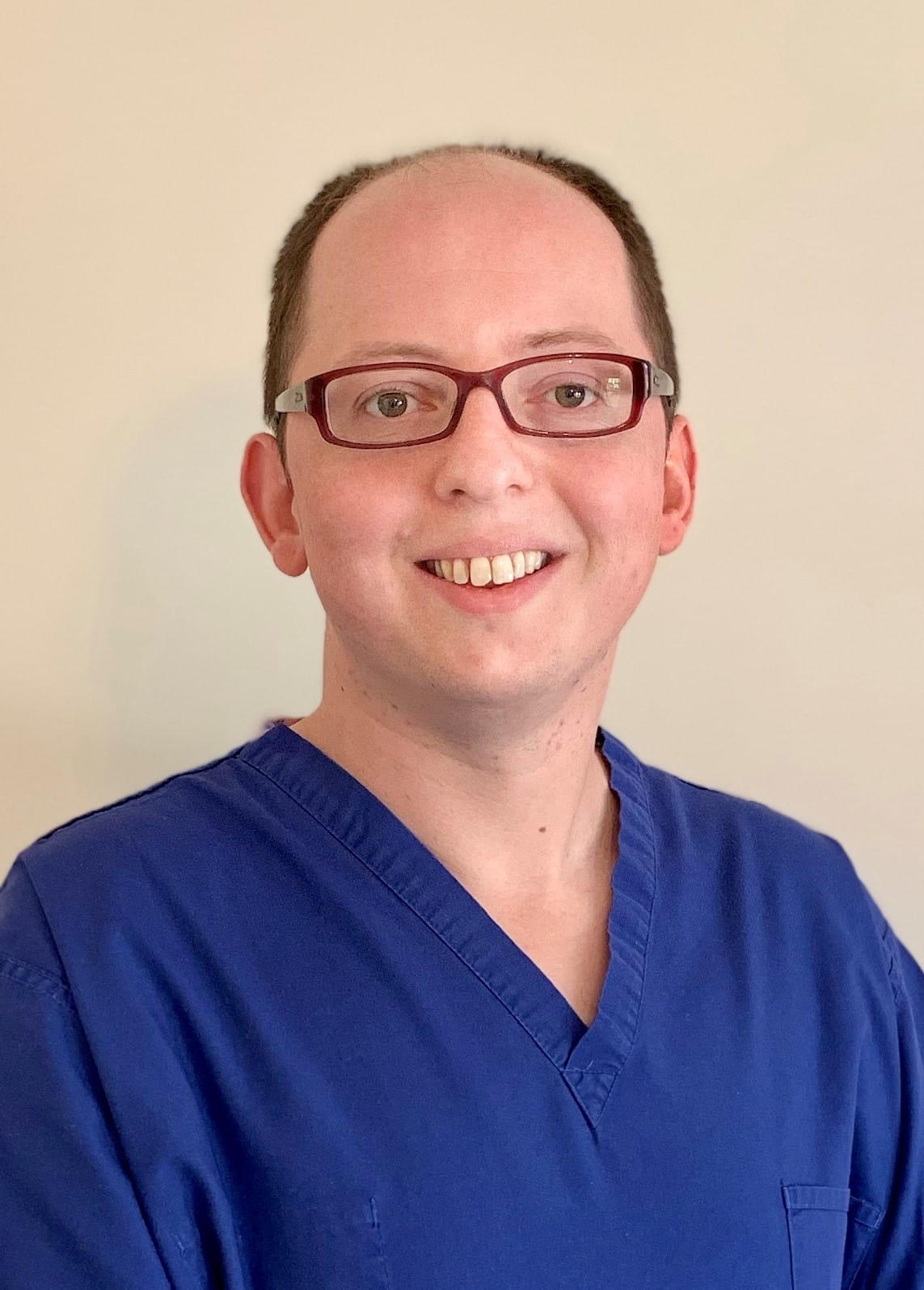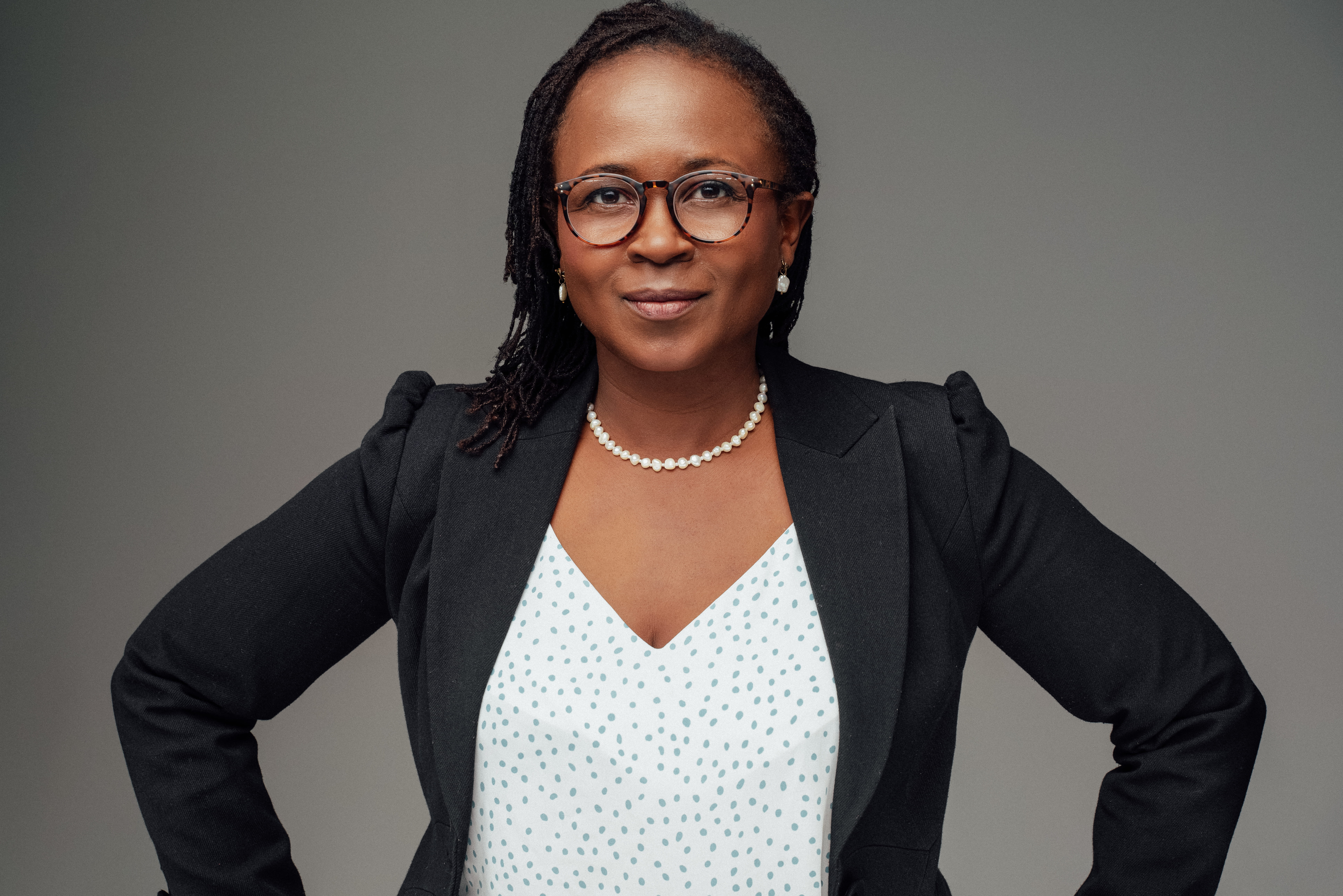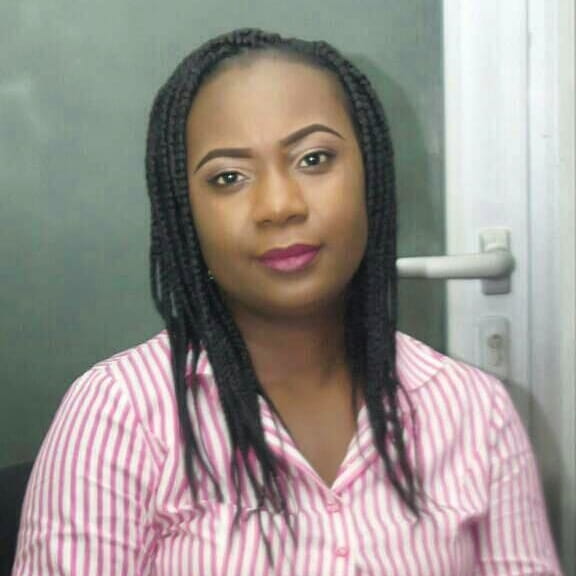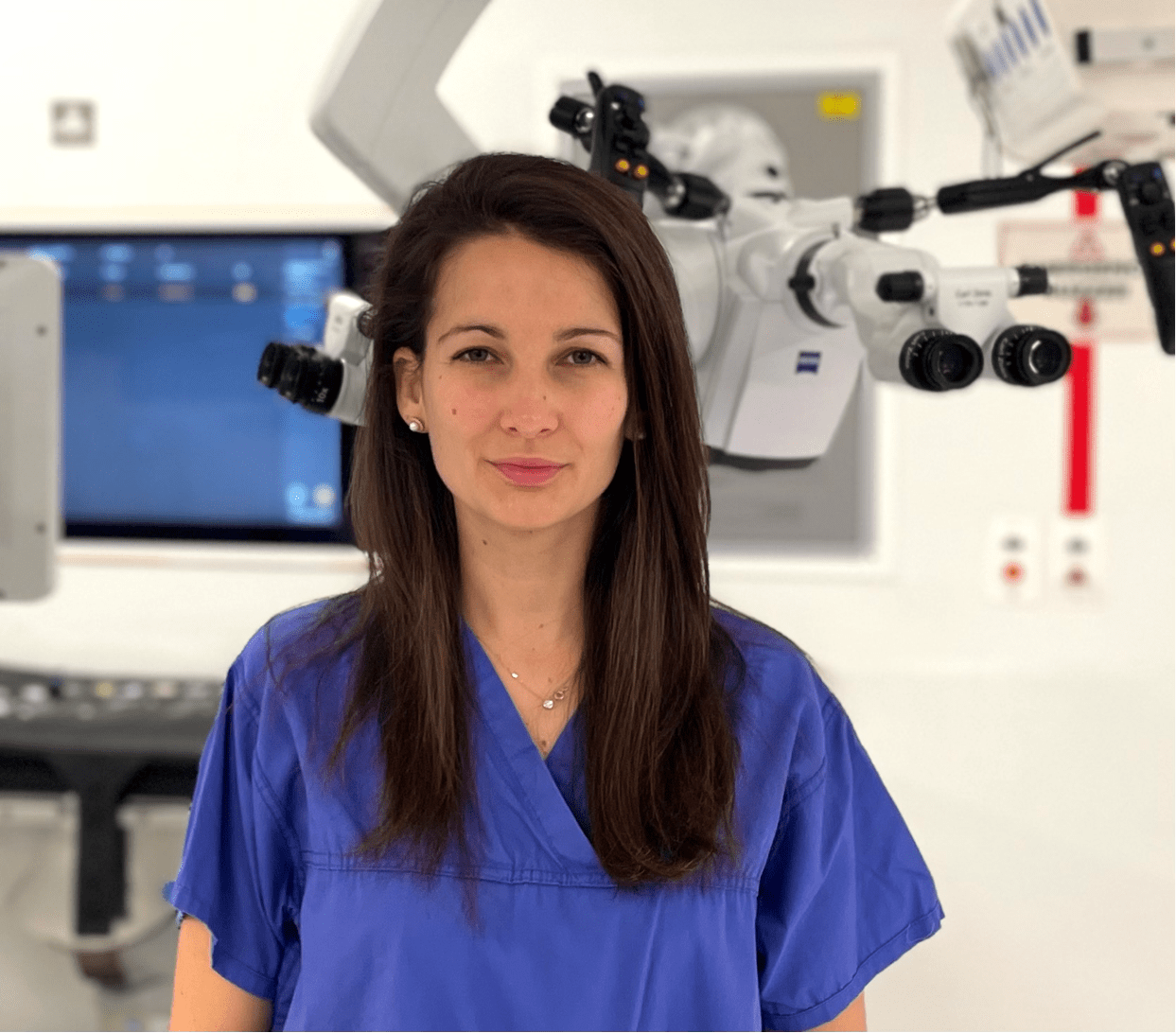Paediatric Surgery Fellowships
RCS England Senior Clinical Fellowships in Paediatric Surgery
This page includes the Paediatric Surgery Fellowships which have been approved under the RCS Senior Clinical Fellowship Scheme.
Applying to be a fellow
Candidates who are interested in these fellowship programmes are required to apply through the NHS Trust jobs website. For more information, please visit our recruitment section or contact the QA Department: qa@rcseng.ac.uk
BAPU Paediatric Urology Fellowships
BAPU BBS Paediatric Urology Fellowship
Based at: Birmingham Children’s Hospital, Bristol Children’s Hospital, and University Hospital Southampton
Surgical Specialty Association approving: BAPU
Approval period: Originally approved March 2022 - February 2025
Reapproved March 2025 - February 2028
Supervisors/Lead Consultants:
- Birmingham: Mr Liam McCarthy, Consultant Paediatric Urologist
- Bristol: Mr Mark Woodward; Southampton, Consultant Paediatric Urologist
- Southampton: Mr Stephen Griffin Consultant Paediatric Urologist
Fellowship duration: 24 months
Stated learning outcomes:
- To be able to manage acutely all emergency cases in presenting to paediatric urology, including obstruction and urosepsis.
- To be able to manage infants and children presenting with antenatal hydronephrosis to routine clinic.
- To be able to manage children with neuropathic bladder and bowel.
- To be able to manage children with congenital bladder outlet obstruction.
- To be able to manage children with incontinence of urine.
- To be able to manage children with renal impairment.
- To be able to manage urolithiasis acutely and in the routine clinic.
Clinical competencies to be achieved:
To understand the natural history and complications of the conditions encountered in paediatric urology, the indications and complications of non-operative management and surgical intervention, and to participate fully in multidisciplinary team meetings.
The number of main operations the fellow could expect to be involved in:
Recommended PBA Level/Minimum to complete Fellowship:
- Exploration acute scrotum (torted hydatid; torsion testis): 4/4
- Cystourethroscopy; SPC insertion: 4/4
- PUV resection: 4/4
- Ureteric access; stent insertion: 4/4
- Cystoscopy and STING/Deflux injection: 4 / 4
- Ureteroscopy- rigid: 4/4
- Ureteroscopy- flexi: 3/-
- Percutaneous nephrolitomy (PCNL): 3/-
- Ovarian cystectomy; ovarian detorsion; oophorectomy: 3/-
- Hypospadias repair: single stage: 4/4
- Hypospadias repair: two stage: 4/4
- Chordee correction: 4/4
- Repair of Megaprepuce: 4/4
- Nephrectomy (open or laparoscopic): 4/4
- Heminephrectomy (open or laparoscopic): 4/4
- Nephrostomy (open/perc): 3/-
- Pyeloplasty (open or laparoscopic): 4/4
- Reimplantation of ureter (open or laparoscopic): 4/-
- Bladder augmentation (ileocystoplasty): 4/4
- Bladder augmentation (ureterocystoplasty): 3/-
- ACE (open or laparoscopic; caecal flap): 4/4
- Mitrofanoff: 4/4
- Monti Mitrofanoff: 4/3
- Bladder outlet procedure (bladder neck reconstruction; bladder neck sling; artificial sphincter): 3/-
- Orchidopexy for palpable UDT: 4/4
- Surgery for impalpable UDT (open or laparoscopic): 4/4
- Laparoscopic gonadal biopsy/excision: 4/4
- Peritoneal dialysis catheter insertion/removal: 4/4
- Feminising genitoplasty: 1/-
- Cloaca repair (PSARVUP; urogenital sinus mobilisation): 2/-
- Bladder exstrophy closure (classic staged/ Kelly etc): 1/-
- Renal Transplantation: 1/-
BAPU GOSH - UCLH Paediatric Urology Fellowship
- To be able to manage acutely all emergency cases in presenting to paediatric urology, including obstruction and urosepsis.
- To be able to manage infants and children presenting with antenatal hydronephrosis to routine clinic.
- To be able to manage children with neuropathic bladder and bowel.
- To be able to manage children with congenital bladder outlet obstruction.
- To be able to manage children with incontinence of urine.
- To be able to manage children with renal impairment.
- To be able to manage urolithiasis acutely and in the routine clinic.
- Exploration acute scrotum (torted hydatid; torsion testis): 4/4
- Cystourethroscopy; SPC insertion: 4/4
- PUV resection: 4/4
- Ureteric access; stent insertion: 4/4
- Cystoscopy and STING/Deflux injection: 4/4
- Ureteroscopy- rigid: 4/4
- Ureteroscopy- flexi: 3/-
- Percutaneous nephrolitomy (PCNL): 3/-
- Ovarian cystectomy; ovarian detorsion; oophorectomy: 3/-
- Hypospadias repair: single stage: 4/4
- Hypospadias repair: two-stage: 4/4
- Chordee correction: 4/4
- Repair of Megaprepuce: 4/4
- Nephrectomy (open or laparoscopic): 4/4
- Heminephrectomy (open or laparoscopic): 4/4
- Nephrostomy (open/perc): 3/-
- Pyeloplasty (open or laparoscopic): 4/4
- Reimplantation of ureter (open or laparoscopic): 4/-
- Bladder augmentation (ileocystoplasty): 4/4
- Bladder augmentation (ureterocystoplasty): 3/-
- ACE (open or laparoscopic; caecal flap): 4/4
- Mitrofanoff: 4/4
- Bladder outlet procedure (bladder neck reconstruction; bladder neck sling; artificial sphincter): 3/-
- Orchidopexy for palpable UDT: 4/4
- Surgery for impalpable UDT (open or laparoscopic): 4/4
- Laparoscopic gonadal biopsy/excision: 4/4
- Peritoneal dialysis catheter insertion/removal: 4/4
- Feminising genitoplasty: 1/-
- Cloaca repair (PSARVUP; urogenital sinus mobilisation): 2/-
- Bladder exstrophy closure (classic staged/ Kelly etc): 1/-
- Renal Transplantation: 1/-
BAPU Manchester and Leeds Paediatric Urology Fellowship
Based at: Manchester Children’s Hospital and Leeds Children’s Hospital
Surgical Specialty Association approving: BAPU
Approval period: Initially approved June 2023–May 2026
Supervisor / Lead Consultant: David Keene, Consultant Paediatric Urologist, Manchester Children’s Hospital and Alexander Turner, Consultant Paediatric Urologist, Leeds Children’s Hospital.
Fellowship duration: 24 months (12months in each centre)
Stated learning outcomes:
- To be able to manage acutely all emergency cases in presenting to paediatric urology, including obstruction and urosepsis.
- To be able to manage infants and children presenting with antenatal hydronephrosis to routine clinic.
- To be able to manage children with neuropathic bladder and bowel.
- To be able to manage children with congenital bladder outlet obstruction.
- To be able to manage children with incontinence of urine.
- To be able to manage children with renal impairment.
- To be able to manage urolithiasis acutely and in the routine clinic.
Clinical competencies to be achieved:
To understand the natural history and complications of the conditions encountered in paediatric urology, the indications and complications of non-operative management and surgical intervention, to be able to participate fully in multi-disciplinary team meetings.
The number of main operations the fellow could expect to be involved in:
Recommended PBA Level/Minimum to complete Fellowship:
- Exploration acute scrotum (torted hydatid; torsion testis): 4/4
- Cystourethroscopy; SPC insertion: 4/4
- PUV resection: 4/4
- Ureteric access; stent insertion: 4/4
- Cystoscopy and STING/Deflux injection: 4/4
- Ureteroscopy- rigid: 4/4
- Ureteroscopy- flexi: 3/-
- Percutaneous nephrolitomy (PCNL): 3/-
- Ovarian cystectomy; ovarian detorsion; oophorectomy: 3/-
- Hypospadias repair: single stage: 4/4
- Hypospadias repair: two-stage: 4/4
- Chordee correction: 4/4
- Repair of Megaprepuce: 4/4
- Nephrectomy (open or laparoscopic): 4/4
- Heminephrectomy (open or laparoscopic): 4/4
- Nephrostomy (open/perc): 3/-
- Pyeloplasty (open or laparoscopic): 4/4
- Reimplantation of ureter (open or laparoscopic): 4/-
- Bladder augmentation (ileocystoplasty): 4/4
- Bladder augmentation (ureterocystoplasty): 3/-
- ACE (open or laparoscopic; caecal flap): 4/4
- Mitrofanoff: 4/4
- Bladder outlet procedure (bladder neck reconstruction; bladder neck sling; artificial sphincter): 3/-
- Orchidopexy for palpable UDT: 4/4
- Surgery for impalpable UDT (open or laparoscopic): 4/4
- Laparoscopic gonadal biopsy/excision: 4/4
- Peritoneal dialysis catheter insertion/removal: 4/4
- Feminising genitoplasty: 1/-
- Cloaca repair (PSARVUP; urogenital sinus mobilisation): 2/-
- Bladder exstrophy closure (classic staged/ Kelly etc): 1/-
- Renal Transplantation: 1/-
BAPU Nottingham Paediatric Urology Fellowship
Based at: Nottingham Children’s Hospital
Surgical Specialty Association approving: BAPU
Approval period: Initially approved June 2023–May 2026
Supervisor/Lead Consultant: Manoj Shenoy, Consultant Paediatric Urologist and Alun Williams, Consultant Paediatric Urologist.
Fellowship duration: 24 months
Stated learning outcomes:
- To be able to manage acutely all emergency cases in presenting to paediatric urology, including obstruction, urosepsis and postoperative complications.
- To be able to manage routine GP referrals and make management plans (with consultant support).
- To be able to manage infants and children presenting with antenatal hydronephrosis to clinic.
- To be able to manage children with neuropathic bladder and bowel.
- To be able to manage children with congenital bladder outlet obstruction.
- To be able to manage children with incontinence of urine.
- To be able to manage children with renal impairment.
- To be able to manage urolithiasis acutely and in the routine clinic.
Clinical competencies to be achieved:
To understand the natural history and complications of the conditions encountered in paediatric urology, the indications and complications of non-operative management and surgical intervention, and to participate fully in multidisciplinary team meetings.
The number of main operations the fellow could expect to be involved in:
Recommended PBA Level/Minimum to complete Fellowship:
- Exploration acute scrotum (torted hydatid; torsion testis): 4/4
- Cystourethroscopy; SPC insertion: 4/4
- PUV resection: 4/4
- Ureteric access; stent insertion: 4/4
- Cystoscopy and STING/Deflux injection: 4/4
- Ureteroscopy- rigid: 4/4
- Ureteroscopy- flexi: 3/-
- Percutaneous nephrolitomy (PCNL): 3/-
- Ovarian cystectomy; ovarian detorsion; oophorectomy: 3/-
- Hypospadias repair: single stage: 4/4
- Hypospadias repair: two-stage: 4/4
- Chordee correction: 4/4
- Repair of Megaprepuce: 4/4
- Nephrectomy (open or laparoscopic): 4/4
- Heminephrectomy (open or laparoscopic): 4/4
- Nephrostomy (open/perc): 3/-
- Pyeloplasty (open or laparoscopic): 4/4
- Reimplantation of ureter (open or laparoscopic): 4/-
- Bladder augmentation (ileocystoplasty): 4/4
- Bladder augmentation (ureterocystoplasty): 3/-
- ACE (open or laparoscopic; caecal flap): 4/4
- Mitrofanoff: 4/4
- Monti Mitrofanoff: 4/3
- Bladder outlet procedure (bladder neck reconstruction; bladder neck sling; artificial sphincter): 3/-
- Orchidopexy for palpable UDT: 4/4
- Surgery for impalpable UDT (open or laparoscopic): 4/4
- Laparoscopic gonadal biopsy/excision: 4/4
- Peritoneal dialysis catheter insertion/removal: 4/4
- Feminising genitoplasty: 1/-
- Cloaca repair (PSARVUP; urogenital sinus mobilisation): 2/-
- Bladder exstrophy closure (classic staged/ Kelly etc): 1/-
- Renal Transplantation: 1/-
Paediatric General Surgery Fellowships
GOSH - Chelsea and Westminster Paediatric Colorectal Fellowship
Based at: Chelsea and Westminster NHS Foundation Trust & Great Ormond Children Hospital NHS Foundation Trust
Surgical Specialty Association approving: BAPS
Approval period: Initially approved April 2016/Reapproved March 2020–May 2023/Reapproved October 2024–September 2027
Supervisor/Lead Consultant: Chelsea & Westminster Supervisor: Mr Muhammad Choudhry, Service Director, Paediatric Colorectal and IBD Surgery Lead, Educational Supervisor. Great Ormond Children Hospital Supervisor: Simon Blackburn, Paediatric Colorectal Surgeon and Educational Lead and Supervisor.
Fellowship duration: 24 months
Stated learning outcomes:
- Competency level 4 in Pull through for Hirschsprungs disease (currently level 3 at CCT level).
- Competency level 4 for posterior sagittal anorectoplasty PSARP (currently level 3 at CCT level).
- Help establish a transitional service for young adults with colorectal disease.
- Experience with pouch surgery for paediatric inflammatory bowel disease patients.
Clinical competencies to be achieved:
- ISCP level 4 competency for pull through for Hirschsprungs disease (CCT currently only requires level 3).
- ISCP level 4 competency for Posterior Sagittal Anorectoplasty PSARP (CCT currently only requires level 3).
- Transitional pathway for colorectal adolescent patients in northwest London.
The number of main operations the fellow could expect to be involved in:
- Hirschsprung pull through: 8 per year
- Anorectoplasty: 10 per year
- EUA rectum +/- seton insertion: 20 per year
- Laparoscopic colectomy: 6 per year
Additional comments:
- Assisting/observing in pouch surgery: 5
- Adult colectomies: 15
- Involvement in MDT meetings
Fellows awarded Fellowship Certificate (dates of Fellowship):
- Yew-Wei Tan (Jun 18–Jul 19)
- Alexander Macdonald (Oct 19–Dec 20)
- Eva Macharia Coates (May 21–May 22)
- Annita Budzanowski (Dec 22–Sep 23)
Newcastle Paediatric Colorectal Fellowship
- Present complex colorectal cases to the supervising consultant, consider the differential diagnoses and potential management strategies and decide on the most appropriate management plan with minimal guidance.
- The fellow will have developed a thorough understanding of the radiological investigations available to assist them in the management of complex colorectal diseases and be able to interpret these investigations and use the information for operative surgical planning.
- Demonstrate competence in laparoscopic surgery for inflammatory bowel disease, to include bowel resection and colectomy. Fellows would be expected to become competent to perform these procedures under direct supervision, after successful completion of the fellowship (and depending on previous laparoscopic experience).
- Demonstrate an understanding the operative procedure for laparoscopic restorative proctocolectomy (Ileal pouch anal anastomosis/IPAA) and be able to complete all steps of the procedure under direct consultant supervision.
- To be competent to perform PSARP for anorectal malformation and to be actively involved in cloacal reconstruction. Fellow will gain exposure in the management of urinary and faecal continence, including the Mitrofanoff & ACE procedures.
- Fellows will gain experience in the surgical management of Hirschsprung disease are expected to perform the pullthrough surgical procedures, under direct consultant supervision, upon successful completion of the 12–24-month fellowship, depending on the level of previous experience at the time of appointment.
- Fellows will play an active role in multidisciplinary team meetings with Gastroenterology, Urology, Radiology and Pathology and joint clinics with Adult Colorectal Surgeons. In addition, there are dedicated Cloaca and IPAA clinics.
- Fellows will be expected to a relevant clinical research project with a view to presentation and publication.
- Fellows are expected to fulfil the requirement of the general paediatric surgical on-call rota (to include neonatal surgery) in both centres, on a 1:8-10 basis.
- PSARPs.
- Hirschsprung disease pullthrough.
- Laparoscopic colectomy.
- Formation of colostomy in neonates.
- Laparoscopic ACE procedures.
- Ileostomy formation.
- Crohn’s bowel resection .
- PSARP: 10/year.
- Hirschsprung pullthrough: 10/year.
- IPAA J pouch: 10/year.
- Colectomy: 10-20/year.
- Crohn’s resection: 10-15/year.
- Alison Campbell (Jul 20 - Jul 22) (Former Newcastle & Leeds Paediatric Colorectal Fellowship)
- Kelly Hoffman (Jul 20 - Jun 22) (Former Newcastle & Leeds Paediatric Colorectal Fellowship)
Newcastle Paediatric Surgery Fellowship
Based at: Great North Children's Hospital, Newcastle
Surgical Specialty Association approving: BAPS
Approval period: May 2020–April 2023; reapproved September 2023–August 2026
Supervisor/Lead Consultant: Mr Alok Godse, Consultant Paediatric Surgeon, with Mr Hany Gabra, Consultant Paediatric Surgeon
Fellowship duration: 12 months
Stated learning outcomes:
- To gain experience in wide variety of general and neonatal surgical conditions including laparoscopic surgery in both, planned and emergency setting.
- To be able to operate/assist in complex Paediatric surgical, urological procedures such as Hirschsprung’s Pull through, Anorectal malformation, Bladder augmentation and more.
- There may be an opportunity to develop subspecialty interest in topics such as, Surgical Oncology, Paediatric Urology, Upper and lower GI surgery.
- To complete a relevant clinical research project with a view to presentation and publication.
- The appointed candidate will have ample opportunities in clinical governance activities ie: audits, teaching etc.
Clinical competencies to be achieved:
- Total number of cases performed by the fellow will be around 300 procedures per year.
- The post is expected to provide experience in Hirschsprung's disease pull through (n 5-10), Laparoscopic fundoplication (n 10-20), Laparoscopic splenectomy (n 5), Percutaneous vascular access (n 80-100), Hypospadias procedures (n 20-40), Laparoscopic pyeloplasty (n 5-10), Nephrectomies and heminephrectomies (10-20).
- The post will also provide exposure to specialist clinics such as multidisciplinary Cloaca clinic, pouch clinic, chest wall clinic, multidisciplinary oncology meetings, Spina Bifida clinic, Nephrourology clinic.
- Candidates selected via the ISTP programme will have an ARCP and is expected to maintain a portfolio on ISCP.
The number of main operations the fellow could expect to be involved in: see Clinical competencies above
Fellows awarded Fellowship Certificate (dates of Fellowship):
- Ryo Tamura (Sept 18–Oct 20)
- Deon Flemmings (Oct 20–Oct 21)
- Oluwaseun Ladipo Ajayi (Oct 21 - Aug 23)
Paediatric Neurosurgery Fellowships
Yorkshire Paediatric Neurosurgery Fellowship
Based at: Leeds Teaching Hospitals NHS Trust
Surgical Specialty Association approving: SBNS
Approval period: October 2018–December 2021; reapproved June 2022–May 2025
Supervisor/Lead Consultant: Mr John Goodden, Consultant Paediatric Neurosurgeon, with Mr Atul Tyagi, Consultant Neurosurgeon
Fellowship duration: 12 months
Stated learning outcomes:
- At the end of the fellowship, the Fellow should have the ability to provide independent surgical neuro-oncology care for the broad range of brain and spinal tumours presenting in Childhood.
- The fellow will be expected to attend and present at International Neuro-Oncology conferences.
- Able to understand the endoscopic management of complex hydrocephalus and arachnoid cysts, and related anatomy.
- Understand the MDT management of patients with spinal dysraphic conditions including the closure of spina bifida and management of tethering from spinal lipoma.
- Understand the MDT management of patients with craniofacial disease.
- Understand the MDT management of patients with spasticity and other movement disorders, including the role of Selective Dorsal Rhizotomy and intrathecal baclofen.
- Have knowledge of the breadth and extent of endoscopic surgery for complex hydrocephalus and arachnoid cysts.
- Have knowledge of the management choices for patients with complex hydrocephalus.
Clinical competencies to be achieved:
- To provide a safe, comprehensive management plan for the investigation, operative management, non-operative management of patients with the full range of paediatric neurosurgery conditions.
- To have a thorough understanding of the possible postoperative paediatric neurosurgery emergencies and their management.
- To have a thorough understanding of the range of interventions available for paediatric neurosurgery - including paediatric neuro-oncology, spinal dysraphism, spasticity surgery, hydrocephalus and craniofacial conditions.
Number of main operations the fellow could expect to be involved in:
Supervisor 2018: “Much of our paediatric neurosurgery operation involves 2 consultants because it is very super-specialist operating. The emphasis would be on the fellow taking a lead role in the surgery, the pre-operative preparation (consent etc) and the post-operative management for these cases … We would expect the fellow to be present for the majority of the paediatric operating cases, with a minimum presence for 2/3 cases - translating to at least 200 paediatric neurosurgery cases during their Fellowship year. Their involvement in surgery would increase throughout the Fellowship with involvement in more complex cases once they have demonstrated suitable levels of competence. By the end of the Fellowship, we would expect the fellow to have been the Lead surgeon for an absolute minimum of:
- Craniotomy & excision of tumour (supratentorial or infratentorial): Total: 20-30; Performed: 5-10
- Endoscopic Third Ventriculostomy: Total: 5-10; Performed: 3-5
- Neonatal VP shunt insertion: Total: 15-20; Performed: 5-15
- Neonatal repair of meningomyelocoele: Total: 5-10; Performed: 2-5
- Single Suture procedure for craniosynostosis: Total: 20-25; Performed: 5-10
- Spasticity treatment - Selective Dorsal Rhizotomy & Insertion of Intrathecal baclofen pump: Total: 20-30; Performed: 5-10
- Isabel Tulloch (Aug 19–Aug 20)
- Ieva Sataite (Aug 20–Aug 21)
- Rebecca Chave-Cox (Aug 21–Aug 22)
- Sandra Dias (Aug 22–Aug 23)
Paediatric Orthopaedic Fellowships
Oxford Paediatric Orthopaedic Fellowship
Based at: Oxford University Hospitals NHS Foundation Trust
Surgical Specialty Association approving: BOA
Approval period: June 2024–May 2027
Supervisor/Lead Consultant: Mr Max Mifsud, Consultant Orthopaedic Surgeon, AES and Mr Alpesh Kothari, Consultant Orthopaedic Surgeon.
Fellowship duration: 12 months
Stated learning outcomes:
- Demonstrate whole patient care including complex paediatric orthopaedic cases, including the formulation of an initial diagnosis, case assessment and management.
- Critically evaluate treatment options and discuss these clearly with the patient.
- Formulate a definitive treatment programme supported by clinical data, and relevant written treatment plan.
- Effectively implement all stages of the treatment programme.
- Understand the legal and ethical principles underlying patient care and treatment.
- Evaluate the outcome of treatment on completion of the treatment programme against the initial stated objective and develop and implement a future clinical pathway for the long-term monitoring and maintenance of the case.
Clinical competencies to be achieved:
This programme is designed to be a transition post in preparation for consultant surgical practice and under direct supervision the fellow is expected to efficiently and effectively manage a junior team of doctors consisting of a registrar and foundation doctor. The fellows are expected to provide the highest quality of clinical care, undertake orthopaedic research, provide education to junior medical AHP and nursing staff and develop professional and leadership skills. Fellows will be assessed in line with the new GMC framework of assessment at the post-CCT level.
The number of main operations the fellow could expect to be involved in:
Approximately 300 per year
Comments from recent Fellows

Alexander Macdonald
Chelsea and Westminster Paediatric Colorectal Fellowship, London, October 2019–January 2021. Current post (June 2021): Consultant Paediatric Surgeon (with Colorectal interest) at Chelsea and Westminster Hospital."This fellowship provided a fantastic opportunity to build experience in paediatric and colorectal pelvic reconstruction both at Chelsea and Westminster Hospital in the UK and at the Center for Colorectal and Pelvic Reconstruction at Nationwide Children’s Hospital in the USA. I have been exposed to a significant volume of Hirschsprung’s and Anorectal reconstructions, including revision surgery, and have been able to develop independent operator confidence. I have particularly valued the ability to work with and learn from adult colorectal colleagues, building an experience of transitional care for young adults that has translated into a novel colorectal transition service for our adolescent patients in North West London."
Alexander Macdonald

Deon Flemmings
Newcastle Paediatric Surgery Fellowship, Great North Children's Hospital, Newcastle, October 2020–September 2021. Current post (December 2021): Paediatric Surgeon, Jamaica."This fellowship has certainly added depth to my training as a paediatric surgeon. As an international fellow, I entered with the focus of minimal access surgery and I have certainly developed laparoscopic skills. In addition, I was able to hone skills in paediatric endoscopy as well as percutaneous vascular access (areas not typically covered by my discipline at home). I have also benefited from high volume exposure in the management of colorectal diseases, as well as exposure to redo procedures. I was also mindful of different perspectives that will certainly now inform best practice as I care for the paediatric cohort in Jamaica. This fellowship boosted my confidence to function independently as a young consultant."
Deon Flemmings

Eva Macharia Coates
Chelsea and Westminster Paediatric Colorectal Fellowship, Chelsea and Westminster NHS Foundation Trust, May 2021–May 2022. Current post: Consultant Paediatric Surgeon, Oxford University Trust."The Chelsea and Westminster (CW) Paediatric Colorectal Fellowship features a well defined curriculum with targets for operations, knowledge and clinical experience. Supervised and unsupervised operating accelerated procedural confidence. Data and clinical oversight of Hirschsprung's and anorectal cohorts broadened my understanding. Close collaboration with the CW adult inflammatory bowel service enriched both operative and clinic management. Transitioning adolescents to the St Mark's Pelvic Floor service generated MDT exposure and confidence in design of transition pathways. I was privileged to receive operative tutelage from Mr MS Choudhry, and professional mentorship from Mr S Clarke. I was grateful for support and advice from Mr M Haddad, CNS N Geoghegan and Mr A Macdonald, a programme alumnus. RCS sub-specialty was instrumental in securing a substantive consultant position and I highly recommend this programme."
Eva Macharia Coates

Oluwaseun Ladipo Ajayi
Newcastle Paediatric Surgery Fellowship, Great North Children's Hospital NHS Foundation Trust, Newcastle Upon Tyne, October 2021–August 2023. Current post: Consultant General & Urological Paediatric Surgeon, Lagos University Teaching Hospital, Nigeria. "My most important achievement as a Fellow was the acquisition of laparoscopic skills and gaining competency to independently carry out laparoscopic procedures without supervision. The personal benefit of undertaking this Fellowship include increased chances of career progression, honing old skills and acquisition of new skills, participation in the management of rare and challenging cases as well the experience of making new professional connections. This translates overall as benefits to my patients as I now have clear ideas to developing/ adapt treatment guidelines to apply towards patient management which will improve surgical outcomes, reduce morbidity and mortality, as well as afford them access to new and effective surgical interventions which had been hitherto unavailable."Oluwaseun Ladipo Ajayi

Sandra Dias
Yorkshire Paediatric Neurosurgery Fellowship, Leeds General Infirmary, Leeds Teaching Hospitals, NHS Trust, August 2022–July 2023. Current post: Consultant Paediatric Neurosurgery, Children’s Hospital of Zurich."The fellowship for paediatric neurosurgery was an important step in my career. By undertaking this fellowship I was able to improve my surgical skills in intricate paediatric neurosurgical procedures. I was able to benefit from valuable multidisciplinary collaborations and discussions regarding patient management. This was possible thanks to the high case exposure and the great mentors that taught excellent values. I grew as a person and as a neurosurgeon. Moreover, the fellowship instilled in me a deep appreciation for evidence-based medicine, continuously seeking the latest advancements to improve patient outcomes. Patient management now involves not only surgical precision but also compassionate communication with families, helping them navigate the complexities of pediatric neurosurgery. It’s about tailoring treatment plans to each child’s unique needs and aspirations, with a keen focus on long-term quality of life. My fellowship in Leeds has undeniably elevated my expertise, enabling me to provide exceptional care to pediatric neurosurgery patients and their families."
Sandra Dias

Yew-Wei Tan
Chelsea and Westminster Paediatric Colorectal Fellowship, London, June 2018–August 2019. Current post (January 2020): locum consultant paediatric surgeon, Evelina Children's Hospital, London."I am proud to have completed this RCS paediatric colorectal fellowship, which offered high quality post-CCT specialist training in centres of excellence, both in paediatric and adult colorectal practice. During my fellowship, I stepped up to being the junior consultant on-call whilst supported by other departmental consultants. I have gained concentrated operative experience in all index paediatric anorectal and colorectal cases (145) as well as adult coloproctology (66). The fellowship was a significant learning curve for me in the management of inflammatory bowel disease as Chelsea & Westminster and St Mark's have some of the largest paediatric and adult IBD cohort of patients in the country. I also learned to perform perianal fistula surgeries and laparoscopic colectomies for many of these patients. Working with specialist gastroenterologists and colorectal teams on both sites also provided unique development in polyposis, anorectal manometry, and colonoscopy. It was a real privilege learning from a team which pioneered minimal access paediatric surgery in the UK as it meant that I was able to advance my laparoscopic skills within this period. With the help of a Simpson Smith Fellowship, I travelled to the Centre of Colorectal and Pelvic Reconstruction at the Nationwide Children's Hospital, Ohio, and observed world-class paediatric colorectal practice in a collaborative manner, and learned bowel management and transition care. This exposure has set a high standard for my consultant practice. I cannot thank my mentors enough for supporting me in my clinical, operative and research endeavours in paediatric colorectal surgery, and in my development as a better paediatric surgeon."
